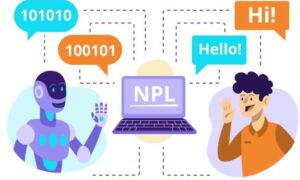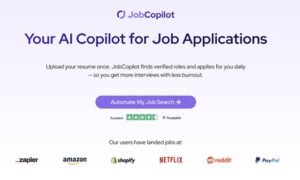Introduction:
In the vast realm of the internet, where information reigns supreme, Google stands as the undisputed king of search engines. Behind the scenes, Google employs a sophisticated blend of cutting-edge technology and artificial intelligence to continually refine its search algorithms. This article delves into the intricacies of how Google harnesses the power of AI to ensure users receive the most relevant and accurate search results.
Understanding the Evolution:
Google’s journey in leveraging artificial intelligence for search algorithms traces back to the early days of the 21st century. As the sheer volume of online content exploded, traditional algorithms faced challenges in providing users with precise and contextually relevant results. Recognizing this, Google embraced artificial intelligence to enhance the search experience.
The Role of Machine Learning:
At the core of Google’s search algorithm evolution is machine learning, a subset of artificial intelligence that empowers systems to learn from data and improve over time. Google’s algorithms utilize machine learning models to analyze vast datasets, discern patterns, and adapt to the ever-changing landscape of the internet.
Natural Language Processing (NLP):
One of the remarkable facets of Google’s AI-driven search algorithms is their proficiency in Natural Language Processing (NLP). This technology enables Google to understand and interpret human language, making searches more intuitive and contextually relevant. Users can now frame queries in a conversational manner, and Google’s algorithms can decipher the nuances to deliver more accurate results.
The Power of Neural Networks:
Neural networks, inspired by the human brain’s structure, play a pivotal role in Google’s AI strategy. These interconnected layers of artificial neurons process information in a way that mirrors human thought processes. By utilizing neural networks, Google’s algorithms can recognize complex patterns and relationships within data, leading to more nuanced search results.
RankBrain:
The Game-Changer:
Enter RankBrain, a machine learning algorithm that has revolutionized how Google interprets search queries. Unlike traditional algorithms, RankBrain is dynamic, continuously learning and adapting to user behavior. It helps Google process ambiguous queries, offering more accurate results even when faced with unfamiliar terms or phrases.
User Behavior Analytics:
Google’s AI-driven search algorithms do not operate in isolation. They constantly analyze user behavior to refine and improve search results. By understanding how users interact with search results, Google adapts its algorithms to prioritize content that aligns with user preferences, delivering a personalized and satisfying search experience.
The Mobile-First Approach:
In the era of smartphones, Google has adopted a mobile-first approach to search algorithms. Notably, with the majority of users accessing the internet through mobile devices, Google’s AI ensures that search results are optimized for mobile platforms. As a result, this responsiveness enhances user experience and underscores Google’s commitment to staying ahead in the mobile-centric digital landscape.
Enhancing User Intent Understanding:
A crucial aspect of Google’s AI-driven search algorithms is their ability to comprehend user intent. Through advanced AI models, Google analyzes not just the words in a search query but also the underlying intent. This ensures that users receive results aligned with their objectives, contributing to a more satisfying and efficient search experience.
Continuous Learning and Adaptation:
The brilliance of Google’s AI lies in its ability to learn and adapt continuously. Moreover, with each search query processed, the algorithms refine their understanding, ensuring that future searches benefit from accumulated knowledge. This iterative learning process, in particular, is a testament to Google’s commitment to staying at the forefront of search technology.
Challenges and Ethical Considerations:
While Google’s use of artificial intelligence in search algorithms has undeniably transformed the digital landscape, it also raises challenges and ethical considerations. Issues such as algorithmic bias and data privacy have come to the forefront, prompting Google to implement measures to address these concerns and ensure fairness and transparency in its algorithms.
Conclusion:
In the ever-evolving world of online search, Google’s ingenious use of artificial intelligence stands as a beacon of innovation. Furthermore, from the early days of machine learning to the advent of RankBrain and beyond, Google continues to push the boundaries of what’s possible in delivering accurate, relevant, and personalized search results. As a result, as technology advances, one thing remains certain: Google’s commitment to harnessing the power of AI will shape the future of online search, making the quest for information more intuitive and rewarding for users worldwide.



































